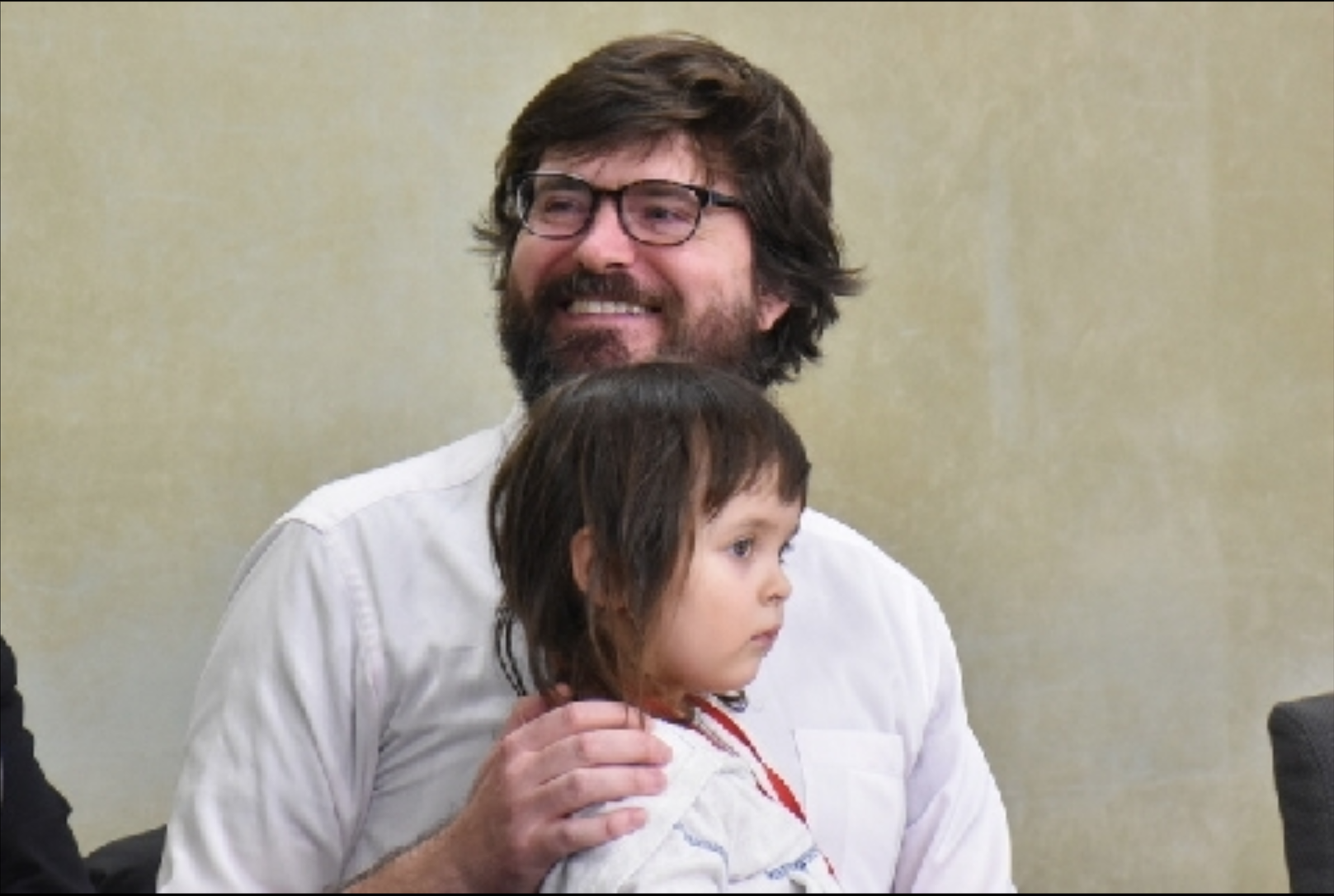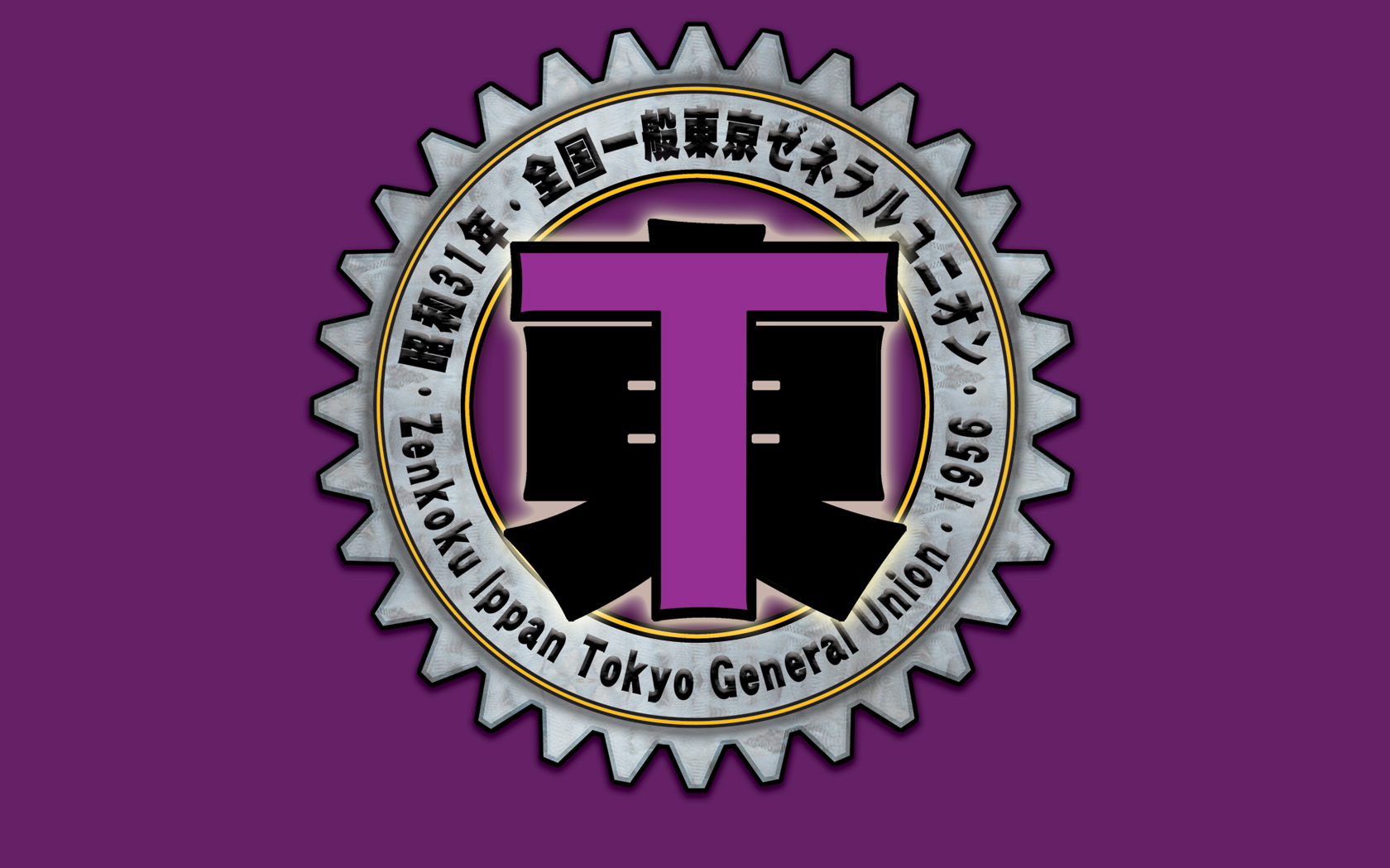Full disclosure: I am the executive president of Tokyo General Union (Tozen), and the plaintiff in this court case is a member of my union. I have a clear conflict of interest here since, although Tozen is not a direct party to the litigation, the union’s fight is key background.
So, dear reader, please read this month’s installment while keeping in mind my inevitable subjectivity on the matter.
Just last month—on October 9, 2019—the Tokyo High Court threw out a lower court ruling and voided a 2017 firing from language school Shane Corporation. The appellant, Adam Cleeve, serves as executive president of Shane Workers Union (SWU), a local chapter of Tozen. He taught English at Shane English School until the employer fired him in February 2017.
Cleeve tried to take paid leave to be with his wife during childbirth and help her care for the new baby. But Shane and Cleeve’s understandings are cleaved into two mutually exclusive understandings of how paid leave works in Japan. Shane management counted his days off as absent without leave, then refused to renew his revolving one-year contract.
He couldn’t bear the utter unjust nature of the firing (my emotion getting in the way now) and sued to overturn the dismissal in the Tokyo District Court. The lower court upheld the dismissal, however, and rejected Cleeve’s claims in a verdict that accepts the defendant’s claims, misreads the law on paid leave, ignores the plaintiff’s assertions, and errs on several facts.
Shane claimed that Cleeve had neglected a child in his class who had fallen and split her lip. He testified in detail the measures he took to care for her and inform her father. Cleeve and the union were knocked off their feet by the first ruling’s ignorance and injustice.
At this point, after two years, I would have forgiven him for giving up the fight and saying screw you to the school, the court, and the whole cruel world. But Cleeve kept the towel in his corner, stood back up, wiped off the sweat, stomped back into the ring, and dragged the case over to the appellate court. He stayed fighting because he could not accept the fact that Shane had, with impunity, violated his right to paid holiday.
He took a large corporation to court with no way to know the time or nature of the outcome, just after getting sacked, after his baby girl was born, after his wife had just given birth to that baby girl. All this required courage, determination, and tenacity, not to mention time and money.
Cleeve saw the fight as not his own but rather a fight for all his workplace comrades. He dared not let up the union’s fight to protect all workers’ right to annual paid leave. His wife and daughter were there for him, as were his union comrades who have fought alongside him for so long. Indeed, even Cleeve would have found it difficult or impossible to fight till the bitter (or sweet) end had he not had a labor union in his corner.
“This is just one small drop in the struggle for workers’ rights,” Cleeve commented on the ruling. “We owe it to each other to hold companies to account and to show solidarity with one another other.” Asked about his current situation, he said, “Now that I’m back at work, my vow is to build a union at Shane that equalizes the power between worker and employer.”
Ok, sip your morning coffee, and let’s take a look at the legal nitty gritty of this case.
Shane hires Cleeve in March 2015 on a one-year contract, which gets renewed the following March. He applies to take paid holidays for the birth of his first child due in November 2016. The company turns him down. Shane grants twenty paid holidays a year but says only five can be taken at the teacher’s discretion. The company designates the other fifteen. Cleeve takes the days anyway, and management counts him as absent without leave. Shane refuses to continue his employment after February 28, 2017.
Paid leave—called nenji yukyu kyuka, nenkyu, or yukyu—is a right guaranteed under Article 39 of the Labor Standards Act (Rokiho). This 1947 law affords you ten days after six months of employment (assuming you work five days a week), Twelve more months gives you eleven days, then the next year twelve, and so on. Each year you get a bigger tranche of yukyu till you top out at twenty days a year. You can carry each tranche over to the following year, but it’s use-them-or-lose-them after that.
One point of contention in the Shane case was over the system that designates all but five of the twenty paid holidays the school offers even in the first year. This system (called nenji yukyu kyuka keikakuteki fuyo) was legislated in 1987, ostensibly to ensure workers took paid holidays and that employers could better manage paid holidays. But use of the system requires a roshi kyotei agreement concluded between the employer and a majority employee representative.
Shane had not signed such a contract at the time of these events. The lower court evaded this issue and ruled that Cleeve’s alleged poor professionalism and multiple absences sufficed for dismissal. The High Court, however, said Shane cannot designate the legally mandated paid holidays without the roshi kyotei.
The Tokyo High Court added that Cleeve should be able to take all twenty days freely, meaning the “designated” days off were invalid. The days Cleeve did not show up for work were either legitimate paid holidays, as per the law, or days that the union struck—a right guaranteed by the Constitution of Japan. In turn, that means the non-renewal “lacked objective, rational grounds according to social norms.” That phrase represents the litigant sweet spot if you want to prove a firing needs overturning.
Among all the points addressed by the court, I was particularly impressed by its recognition of the importance of the legal principle called “procedural justice.”
The system of designating government-guaranteed paid leave days recognizes the employer’s involvement in what is supposed to be a free decision by workers. All the more reason the system must be run properly to avoid it becoming yet another tool helping management keep workers in line. A pact between management and a duly elected representative is required to designate paid holidays. Another such an agreement (called an Article 36 Agreement, saburoku kyotei, since it is stipulated there in the Labor Standards Act) is also required before workers can be asked to work more than eight hours a day. (Incidentally, workers in Japan take 51.1% of their allotted leave, according to a Ministry of Labor, Health and Welfare study. Workers are flushing half their paid leave down the drain. One of Prime Minister Shinzo Abe’s workplace reforms that kicked in this April is a new rule that forces employers to require their employees to take at least five days if they don’t take any on their own.)
This Article 36 Agreement document is crucial since it reflects the will of workers. Yet many workplace representatives are appointed by management rather than elected by employees. The representative then signs it without properly reading what she is signing. This happens at Shane as well, and our union is currently disputing just this issue in negotiations.
“Shane will do whatever they can to prevent their teachers and staff from exercising their rights under labor law—in this case, the right to take paid holidays freely,” said Tozen Senior Organizer Louis Carlet. “They make their own rules and apparently believe their rules take precedence over the law.”
Cleeve and the Shane Workers Union have drawn attention to the problem of employers ignoring workers’ voices during these processes. Although the lower court ignored this problem, the Tokyo High Court recognized that an employer cannot simply decide paid holidays unilaterally without input from the workers themselves. This verdict defends something well worth defending.
This article was written by Hifumi Okunuki, and originally published by the Shingetsu News Agency (SNA).



